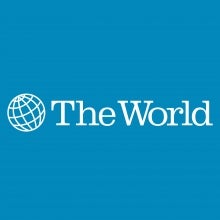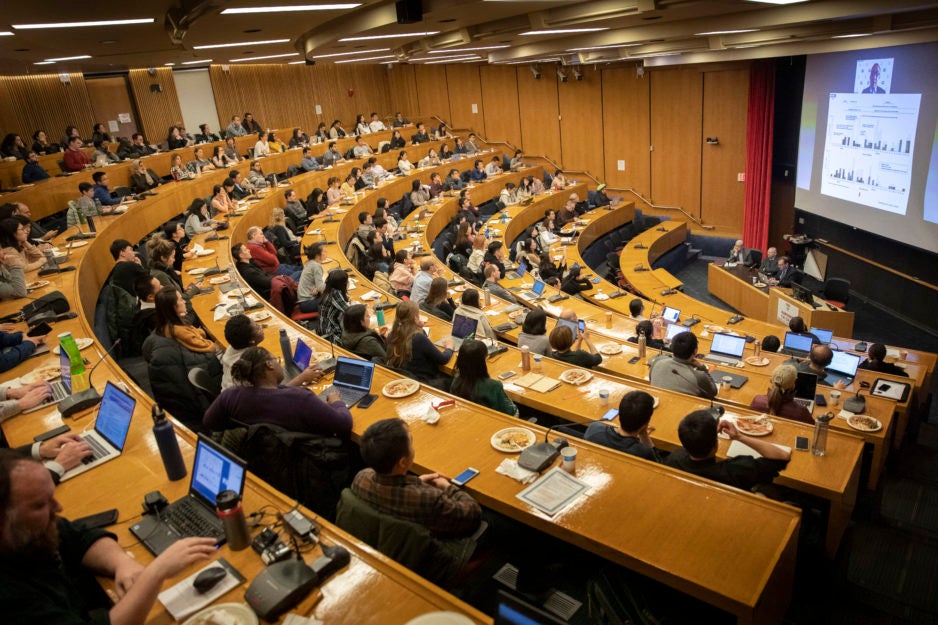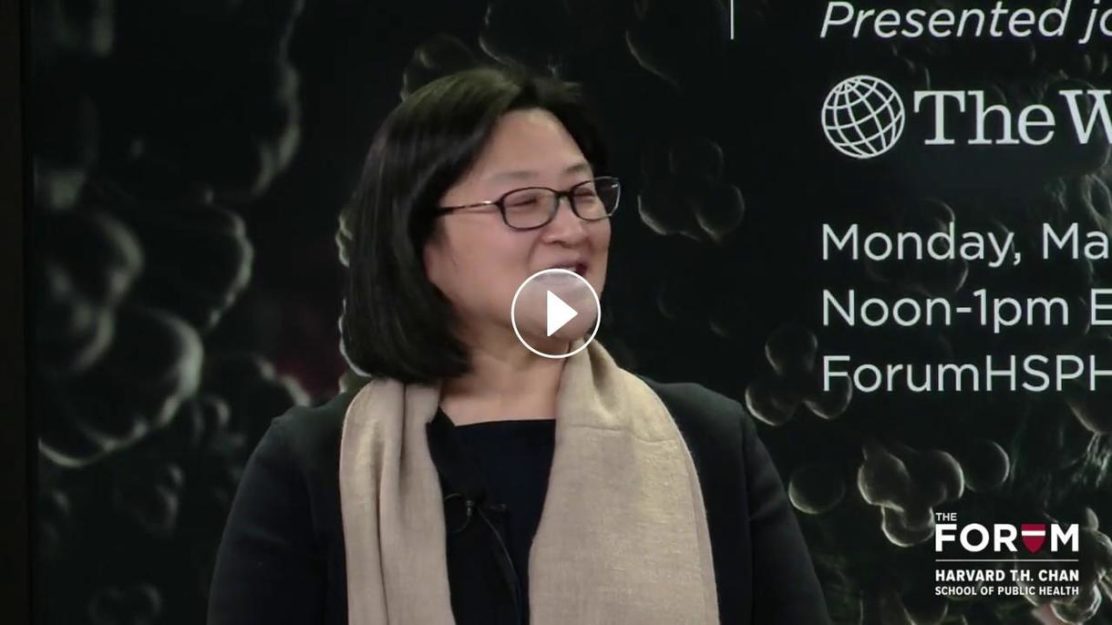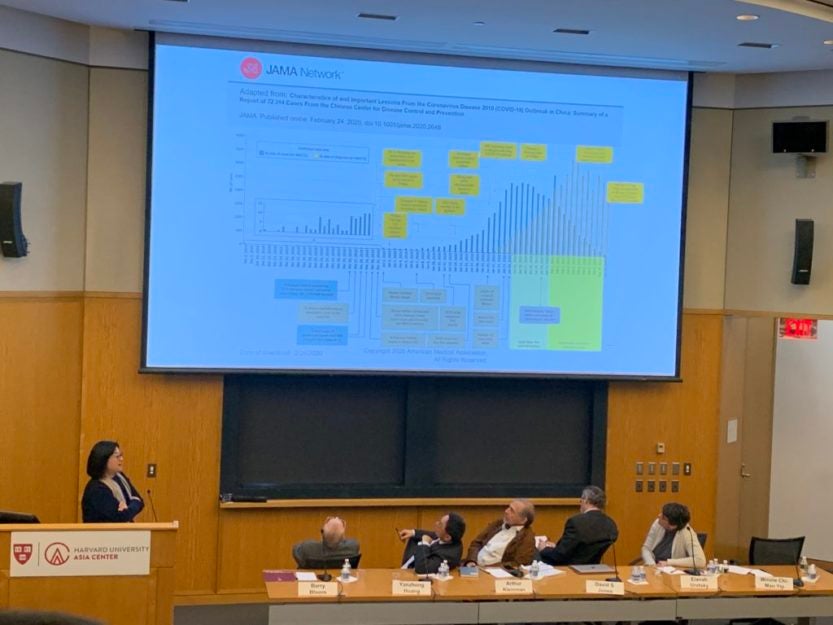BBC Newshour, March 12, 2020 Countries have been responding in very different ways Europe has been reacting to the global outbreak of the coronavirus. Prime Minister Boris Johnson has taken a minimalist approach compared to other governments who are reacting very differently. We question: who is getting it right? Also on the programme: we hear from the two countries hardest hit by COVID-19. Dr. Winnie Yip speaks at 45 minutes…
Where China’s at in containing the COVID-19 outbreak? (Professor Winnie Yip on PRI’s The World)
Chinese authorities are reporting another slight drop in the number of new cases of COVID-19. That’s good news in the country where the virus was first identified and which has the most cases in the world. But China is still struggling to contain the virus and treat those who have it. Marco Werman of Public Radio International’s headlining program, The World, speaks with Winnie Yip who directs the China Health…
So how bad is coronavirus in U.S.? We don’t know yet (Harvard Gazette)
The Harvard China Health Partnership held a special seminar on March 2, 2020 featuring speakers from Hong Kong, China, and Harvard to discuss complex questions about COVID-19 and the response in China. Full recording and Chinese translation of the two-hour event, “The COVID-19 Outbreak: Chinese and Global Decisions During Uncertainty” are available here. The Harvard Gazette attended and provided the following synopsis. Chan School, Medical School officials say slow rollout…
Continue reading “So how bad is coronavirus in U.S.? We don’t know yet (Harvard Gazette)”
CHP Seminar – The COVID-19 Outbreak: Chinese and Global Decisions During Uncertainty
Resources A video recording of the event is available here in English. 中文翻译 – Chinese translation is available as two files, Part 1 and Part 2. Read media coverage in the Harvard Gazette. The Harvard China Health Partnership hosted speakers from Hong Kong, China, and Harvard for a special dinner seminar to discuss complex questions about COVID-19 and the response in China. What could China have done differently in light of…
The Forum – The Coronavirus Outbreak: Tracking COVID-19
The Coronavirus Outbreak: Tracking COVID-19 Presented jointly with The World from PRX & WGBH Rumors and conspiracy theories about the novel coronavirus have run rampant on social media in China, yet social media has largely untapped potential as a platform for education and communication from trusted sources, says Winnie Chi-Man Yip, faculty director of the Harvard T.H. Chan School of Public Health, Harvard China Health Partnership, speaking at The Forum…
Continue reading “The Forum – The Coronavirus Outbreak: Tracking COVID-19”
Going Viral: The Coronavirus and its Regional and Global Implications
The Harvard China Health Partnership was pleased to co-sponsor a panel discussion about COVID-19 and its regional implications. Additional co-sponsors included the Harvard University Asia Center, Harvard University Fairbank Center for Chinese Studies, and Ash Center for Democratic Governance and Innovation, Harvard Kennedy School. Resources A video recording of the event is available here in English. 中文翻译 – Chinese translation is available either here on WeChat (with hundreds of comments…
Continue reading “Going Viral: The Coronavirus and its Regional and Global Implications”
Coronavirus: Wuhan Communist Party official apologises for failure to provide patients treatment (Professor Winnie Yip in South China Morning Post)
Wuhan, where the new coronavirus outbreak originated, had 8,300 confirmed cases of infection as of February 4. The city has been racing to add hospital beds to care for patients, including building two new hospitals in less than two weeks and converting a sports stadium and two convention halls into “modular hospitals.” Winnie Yip, professor of the practice of international health policy and economics, said the Wuhan strategy was sensible, but…
Wuhan Building Two Hospitals in Just Days (Professor Winnie Yip on VOA News)
Winnie Yip, Professor at the Harvard T.H. Chan School of Public Health and Director of the Harvard China Health Partnership, said that the two coronavirus treatment centers being constructed in Wuhan are badly needed, because “most large tertiary hospitals in China are very crowded and overstretched.” She added, “In the long run, China should build a stronger primary health care and public health system that would actually prevent something like…
Continue reading “Wuhan Building Two Hospitals in Just Days (Professor Winnie Yip on VOA News)”







